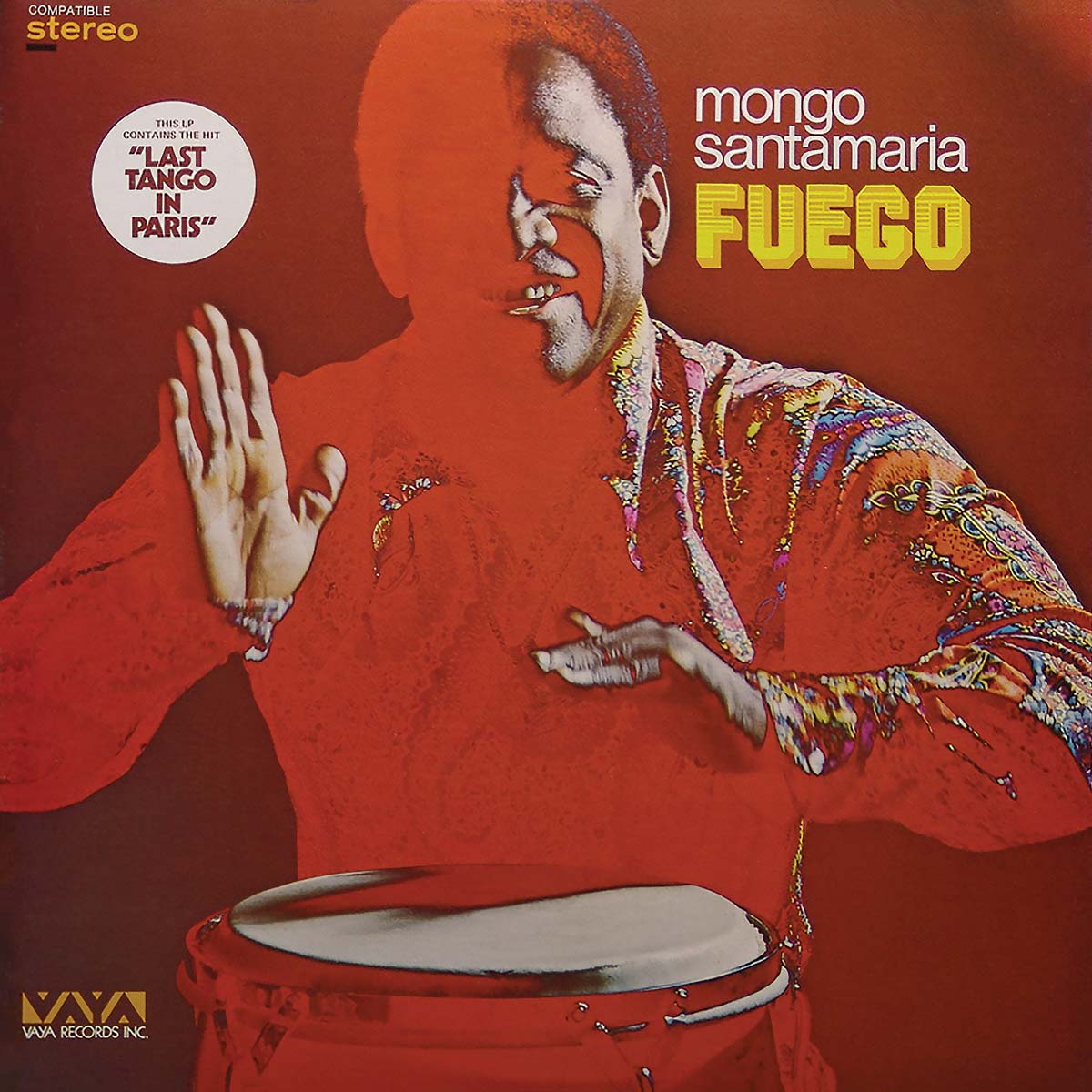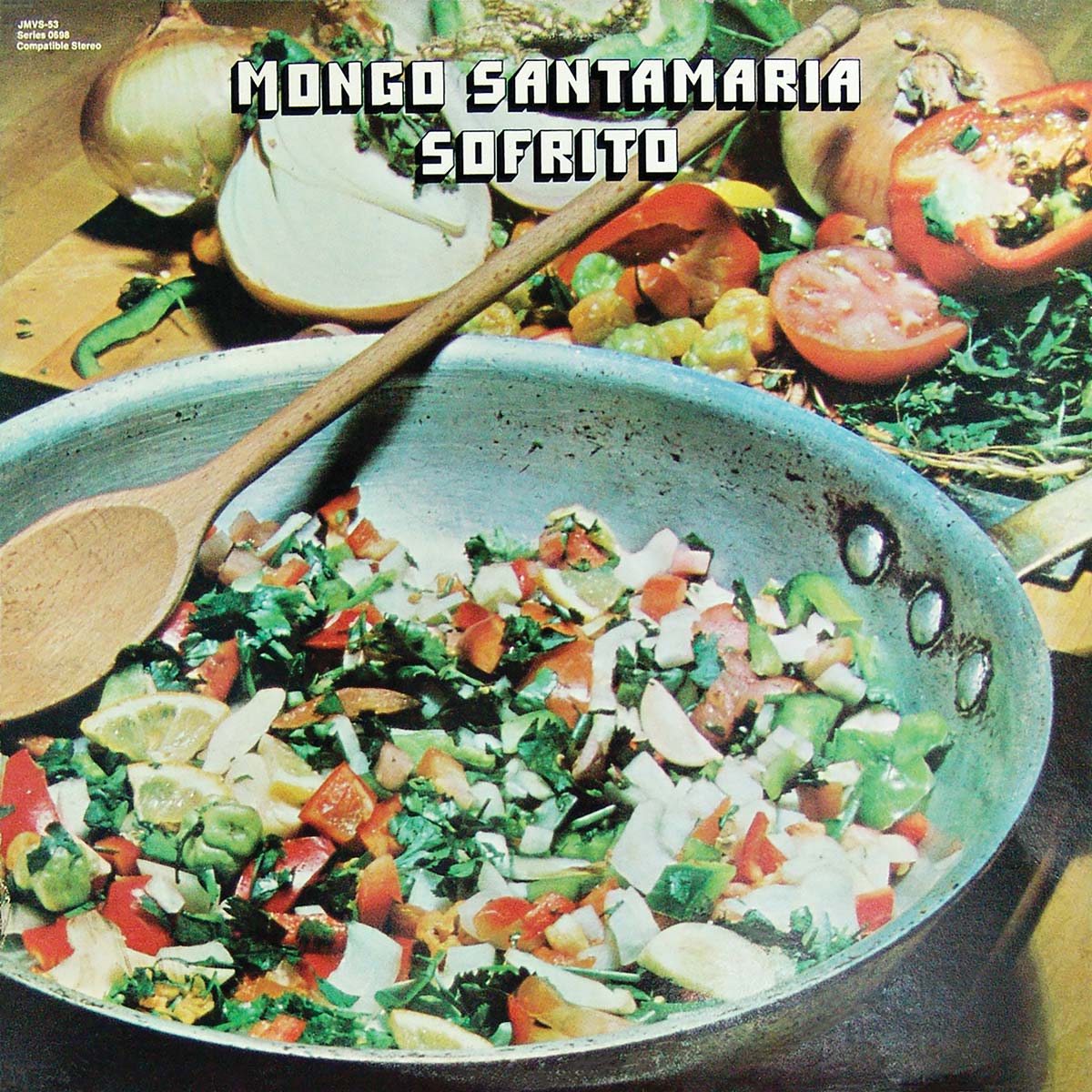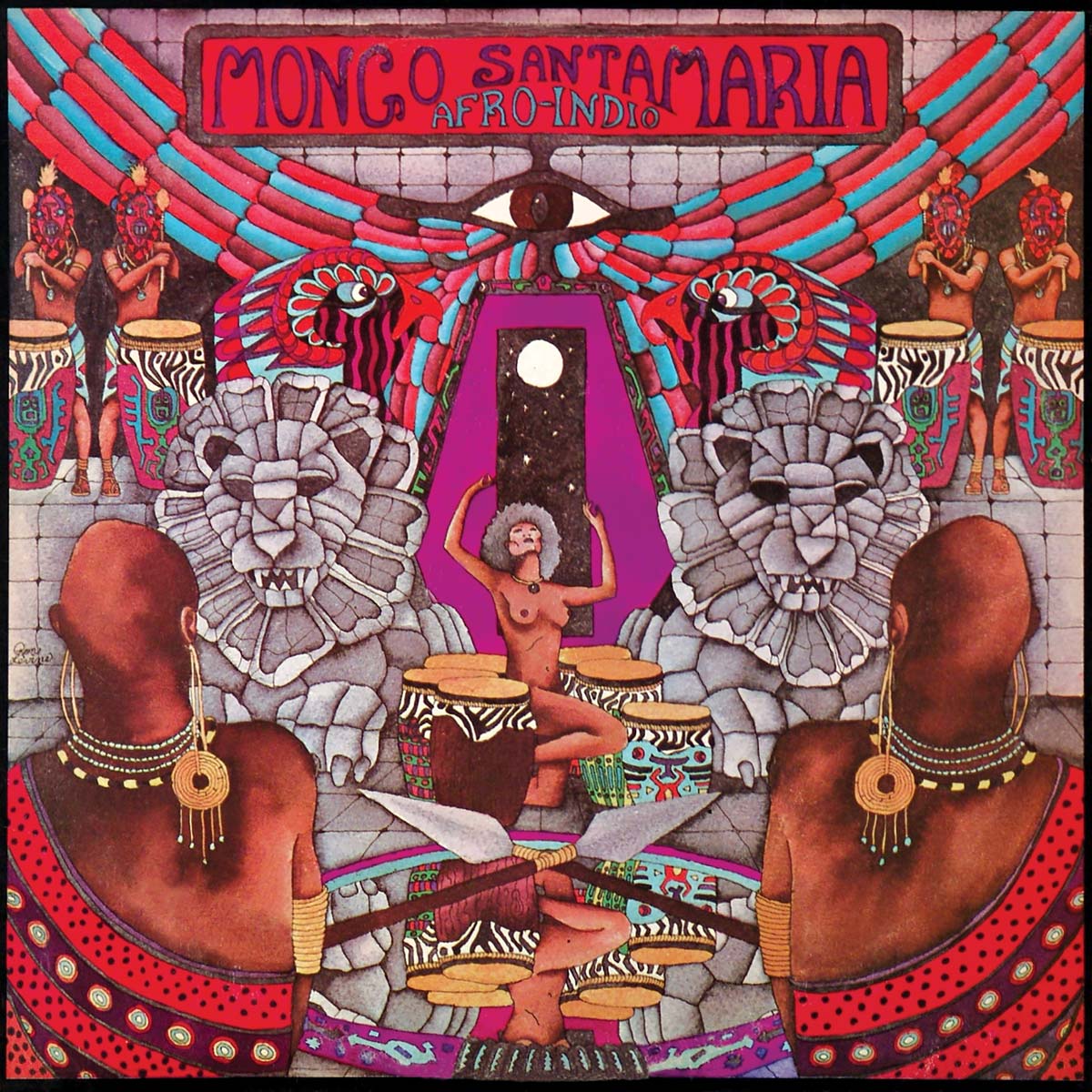
Ramón “Mongo” Santamaria (b. Apr. 7, 1917 Havana, Cuba – d. Feb. 2003 Miami, Fl.) is certainly an iconic figure in the history of Afro-Cuban, jazz and folkloric music. His groups re-defined small group Latin jazz by expanding on the concepts laid down in the 1950’s by one of his former employers, Cal Tjader (b. July 16, 1925 St. Louis, MO – .d. May 4, Manila, Philippines). Although Tjader continued to be a vital force till his death, Mongo’s groups embodied experimentation and through the turbulent 60’s and 70’s embraced funk, rock, rhythm & blues, Brazilian, Colombian and even Venezuelan rhythms. Although Mongo had left the friendly confines of mainstream record companies like Fantasy, Columbia and Atlantic, his musical vision did not change. With Fania he would continue to record jazz oriented records despite the companies reputation as a Salsa powerhouse. This recording, one of his least known, but best, embodies that spirit.
The opener, bassist William Allen’s “Crazy Lady”, exudes up-tempo funk with Mongo’s propulsion on congas as the band demonstrates that it will take no prisoners. On this recording, Puerto Rican drummer and timbalero , Tony Sanchez steps in for Mongo stalwart Steve Berrios who had taken a break from the band, and masterfully compliments the rhythm section. Allen’s compositional and arranging skills are further demonstrated in “Don’t Step On My Tears” as the band easily shifts between samba cansao and funk featuring Colombians José Madrid on piano and Justo Almario on tenor sax. Luis Perico Ortiz would become a great bandleader in his own right as well as a Fania All Star. Playing with Mongo was his first big gig in N.Y.C. after arriving from his native Puerto Rico. It would provide him with a vehicle to showcase his multiple skills as an arranger, composer, trumpeter, percussionist and sometime flute player. Ortiz’s “Chambique” is a combination of cha-cha-cha-cha, guajira which goes into up-tempo mozambique, comparsa with a final ritual Santeria bembé section featuring the vocal talents of the legendary Julito Collazo. It’s a potpourri in the best sense of the word and exudes Mongo’s Cuban roots both from the secular and religious perspectives.
The Claudio Roditi composition , “Teminha Pra Bebe” showcases the excitement of Brasilian samba and Roditi’s guest work on trumpet. Mongo would always cover current popular songs of the day and his version of Gato Barbieri’s theme to the controversial film,” Last Tango in Paris” was no exception. The haunting melody features Justo’s growling tenor along with an introductory solo by electric violinist John Blake. The highlight of this re-issue is the funky guajira-son, cha-cha-cha, “Besame”. With an all to short vocal interjection by Justo Betancourt, the tune evokes the lamentful feeling that is at the heart of the Cuban guajira. A short blues influenced solo by Madrid is a lead in to one of the most brilliant trumpet solos ever recorded by Ortiz as the saxophones chant while he cries on the horn as Mongo does some incredible bongó style repiques (conversations) on the congas at this slow tempo.
Brasilian bossa nova combined with Cuban bolero frames Bobby Porcelli’s “Springtime”, as the flute choir plays the melody and Mongo percolates on bongó. The deep West African groove of bembé is featured on Almario’s “Malcolm X” with Mongo playing a tumbadora with a stick in his right hand. Bill Saxton’s fire is featured on alto as well as Perico’s soaring trumpet while Almario this time solos on piccolo. “Fingers” is a tour-de-force for Mighty Mongo as he performs on conga, then bongó to the accompaniment of electric bass and electric rock guitar. It suddenly shifts gears into a fast guaguancó which features a short conga solo and then climaxes with him soloing on the bongó with sticks. A fitting finale as Changó is Mongo’s patron deity in the religion known as Santeria and the lord of the drum, dance, thunder and yes, fuego (fire)!!!
Credits:
“Mongo” Santamaria – Congas, Bongó, Tumbadora Played With Stick – (“Malcom X”)
Luis “Perico” Ortiz – Trumpet, Flugelhorn, Flute
Justo Almario – Tenor Saxophone, Flute, Piccolo
Bill Saxton – Alto Saxophone, Baritone Saxophone, Flute
José Madrid – Piano
William “Willie” Allen – Electric Bass
Tony Sanchez – Drums, Timbales
Additional Musicians:
John Blake – Electric Violin ( “Last Tango In Paris”)
Claudio Roditi – Trumpet (“Teminha Pra Bebe”)
Julio “Julito” Collazo – Bass Drum
Bobby Porcelli – Flute Solo (“Springtime”)
Elliot Randall – Electric Guitar (“Fingers”)
Marty Sheller – Güiro (“Besame”)
Johnny Pacheco – Bongó Bell (“Besame”)
Background Vocals – Marcelino Guerra, Justo Betancourt ( “Chambique”, “Besame”)
Yoruba Lead Vocals – Julio “Julito” Collazo (“Chambique”)
Final Vocal Declarations – Marcelino Guerra (“Chambique”)
Final Voice – Ramón “Mongo” Santamaria , “That’s all” (“Besame”)
Producer – Marty Sheller
Executive Producer – Jerry Masucci
Assistant Producers – Johnny Pacheco, Jack Hooke
Recorded at – Good Vibrations Sound Studios, N.Y.C.
Recording Engineer – Alan Manger
Original Album Photography – Ken Beckles
Original Album Cover Art Design – We-2 Graphics, Inc./ Walter Velez, Izzy Sanabria
Written by Bobby Sanabria




